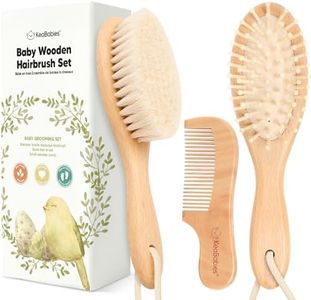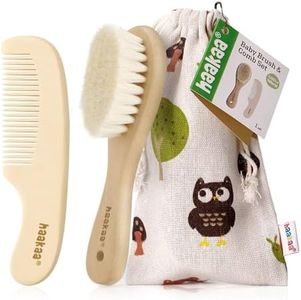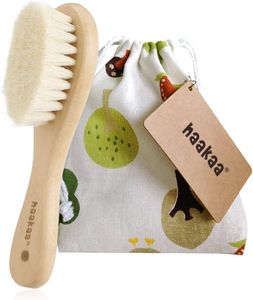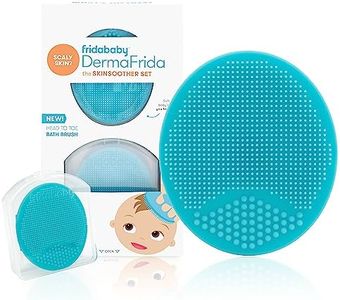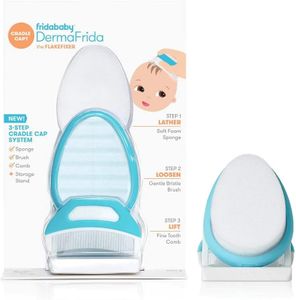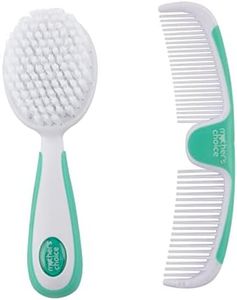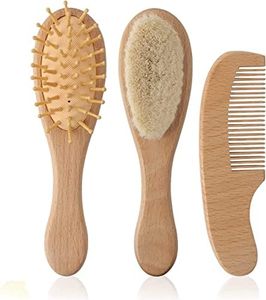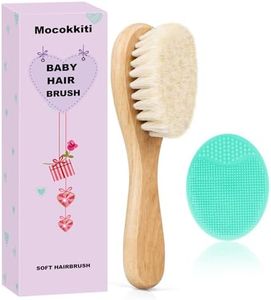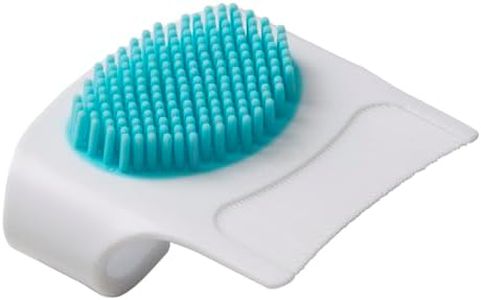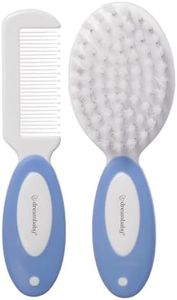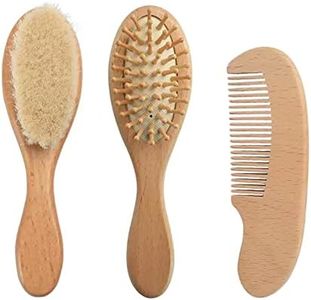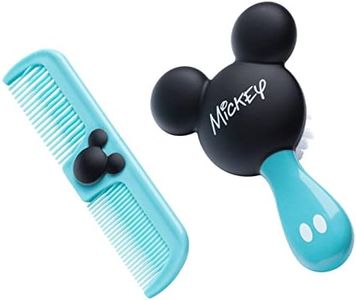We Use CookiesWe use cookies to enhance the security, performance,
functionality and for analytical and promotional activities. By continuing to browse this site you
are agreeing to our privacy policy
10 Best Hair Brushes For Babies
From leading brands and best sellers available on the web.By clicking on a link to a third party's website, log data is shared with that third party.
Buying Guide for the Best Hair Brushes For Babies
When picking a hair brush for babies, your main goals are to keep your baby comfortable, protect their delicate scalp, and make brushing a pleasant experience. Baby hair and skin are much more sensitive than those of adults, so the right brush can help avoid discomfort, tangles, and scalp irritation. It's important to understand the different features that can make a baby hair brush gentle and suitable for everyday use.Bristle TypeBristle type refers to the material and softness of the bristles. For babies, this is crucial because their scalp is sensitive. Bristles can be natural (such as goat hair) or synthetic (like nylon). Natural bristles are usually softer and better for newborns, helping to avoid scratching or irritating the scalp. Synthetic bristles can be a bit firmer and may be more effective for gently detangling as the baby gets older with thicker hair. Choose a softer bristle for newborns and very young babies, and a slightly firmer one as your child grows and their hair thickens.
Brush Size and ShapeThe size and shape of the brush affect how easy and safe it is to use on a baby. A smaller brush head is easier to maneuver around tiny heads and soft spots, while an ergonomic handle ensures you have a good grip even during a wiggly moment. Pick a compact size for newborns and infants so you can brush carefully and safely; as your baby grows, you may prefer a slightly larger one for efficiency.
Ease of CleaningEase of cleaning matters because baby brushes can collect oil, dead skin (like cradle cap), and hair. Some brushes have bristles tightly packed together, making them harder to wash, while others are designed to be rinsed and dried quickly. For babies prone to cradle cap or if you plan to use lotions or oils, look for a brush that’s easy to clean so you can maintain hygiene with minimal effort.
Scalp Sensitivity and Special FeaturesSome brushes are designed specifically for extra-sensitive scalps or for addressing issues like cradle cap. These may feature ultra-soft bristles or rubber nubs that massage the scalp gently. If your baby has particularly sensitive skin, cradle cap, or fine hair, look for brushes advertised as gentle or designed for sensitive scalps, as these will make your brushing routine both safe and soothing.
Handle DesignHandle design may seem minor, but it affects your ability to control the brush. Brushes designed for babies often have thicker or rubber-coated handles for a secure grip. This makes it easier for you to brush gently, especially if your baby is moving around. Choose a handle that feels comfortable and stable in your hand for the best experience during daily use.
